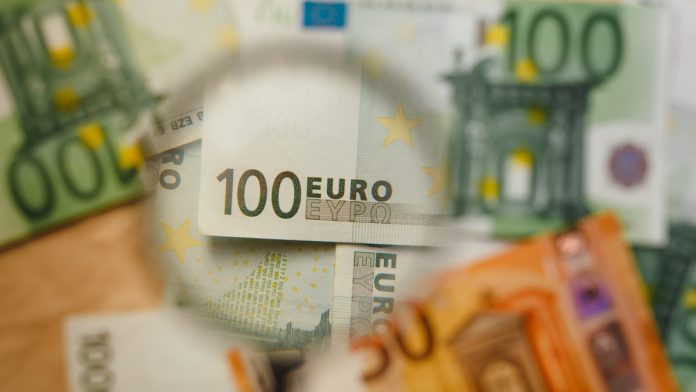- Pound (GBP) falls as confidence in PM falls
- Concerns over UK economy remain
- Euro (EUR) rises after record high German inflation
- Eurozone inflation is due
The Pound Euro (GBP/EUR) exchange rate is holding steady after losses in the previous session. The pair settled -0.27% on Monday, at €1.1734 after trading in a range between €1.1723 – €1.1774. At 05:45 UTC, GBP/EUR trades +0.01% at €1.1735.
The pound drifted lower versus the euro yesterday in a quiet session as far as data was concerned. Fears over the health of the UK economy linger following disappointing data last week. The services PMI plummeted significantly below forecasts.
Pressure continues to mount on Prime Minister Boris Johnson over party gate and the illegal parties in his offices over the pandemic. 34 Conservative members of Parliament have handed in letters of no confidence. This would need to rise to 54 letters in order for the PM to face a vote. The political uncertainty dragged on the pound.
Today there is no high impacting UK data, so the Euro is likely to drive trading.
The euro gained in the previous session after German inflation data rose to a record high and after Eurozone consumer sentiment showed signs of stabilising.
German inflation rose to a fresh record high of 7.9% year on year in May, up from 7.4% in April and well ahead of the 7.6% forecast by analysts. Soaring food and energy prices were the principal drivers of the rise in prices which adds pressure to the EUROPEAN Central Bank to raise interest rates soon. Currently, the ECB is still winding down pandemic era stimulus.
Separately data showed that confidence among Eurozone consumers and businesses stabilised in May. The European Commission Consumer Confidence rose to 105 in May up from 104.9.
Looking ahead there is plenty of data for investors to digest including German unemployment figures. However, the main attraction will be Eurozone inflation data which is expected to rise to a record high of 7.7% year on year in May, up from 7.4% in April. Hot inflation could raise expectations that the ECB will raise interest rates in July.





